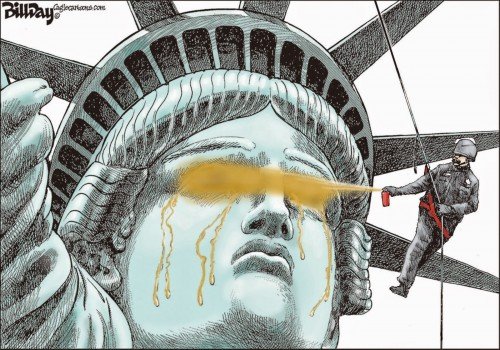
Criminal justice systems are a worldwide phenomenon
The same goes for central banks, governments, and the fiatcurrencies that we use today. Surely there's nothing wrong with something so universal? Catch the bad guys and punish them accordingly. Is it that simple?
Why did I spend 20 hours writing this?
Criminalization is an inefficient tool in keeping society safe and sound. If you have experienced the state knocking down your door and giving you hell for no good reason, you'd understand that criminalization is a disruptive process. It destroys lives. Look no further than mass incarcerations in the United States.
Make no mistake that mankind has always been rolling with the punches. Every social structure, like a technological device, starts off crude before becoming sophisticated. Currency have recently updated itself through blockchain technology. So what about criminalization? Sure, we've kept some psychopaths at bay, while causing countless amounts of collateral damage in the lives of innocent, sovereign beings. Is there a better way of doing things?
There are ways to render criminalization obsolete. But first, let's inspect its fundamental problems.
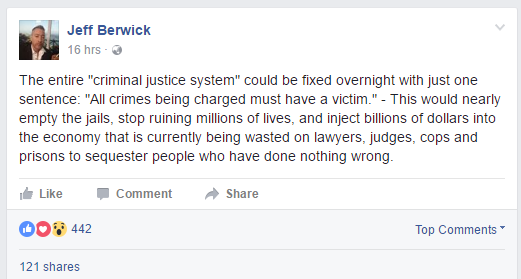
Why criminalization sucks?
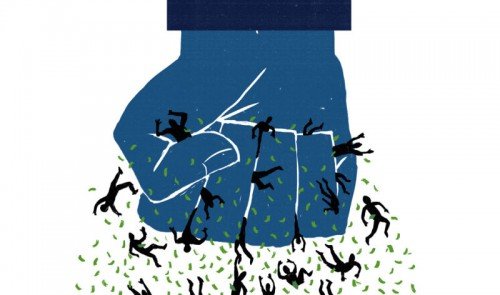
Socioeconomic leverage determines most outcomes -
People in position of wealth and power have better immunity against criminalization. If I'm a highly networked rich and powerful individual, common sense is telling me that I'm not going to jail. I'll just pay off some fines as punishment. Some people are above the law, period. And not everyone has access to proper legal representation.
Also, those not in position of wealth and power do not have the necessary resources to fight yearlong court cases. Criminalization is disproportionately disruptive for 99% of the population.
Lawbooks are so complicated -
Am I going to tell my child that she needs to fully understand the thousands of pages of convoluted fiction in order to avoid scuffles with the law? Social contracts are necessarily built upon mutual consent. But we know that laws are always revised without our expressed consent. Becoming a criminal is not just as simple as the act of theft and violence. You can easily become one out of petty rules of law.
Criminals are branded differently across all pockets of society -
This increases the complexity of criminalization. As an extreme example, there's nothing wrong being a headhunter in a headhunting tribe. It is perfectly fine within the community. But the headhunter will soon discover that he's a criminal once he steps into the broader world. You'll never really know what's unacceptable in another region.
Criminalization can be used for political powerplay -
Criminal cases can be pushed forward to indict political opponents. Power players wishing to rise up the ranks of government could overzealously search and close criminal cases. It happens, usually at the expense of underrepresented minorities.
Criminalization is incompatible with compassion -
Compassion is something that grows day by day as you're exposed to more personal stories from people all around the world. Criminalization is a shortcut to cull members of society that do not fit into the system. Compassion is all about healing. It is hardwork channelled through the love and care for others. Practising criminalization alongside compassion contributes to the overall unhappiness of our society.
Falsity of complete free will and accountability -
All man made laws assume that every moral agents are completely accountable over their thoughts and actions. While I certainly believe in personal responsibility, there are plenty of issues with free will. There will be an erosion in criminalization once free will is properly understood. I will address in the next section.
Limitations of free will and accountability

You have free will, no matter what others may tell you. However, you can only be as free as your environment and mental life. Take for example, slavery used to be acceptable in the United States. Are supporters of slavery exercising their own free will to support the idea of slavery, regardless whether if its right or wrong? If its so commonplace in a culture, it may never occur to someone that it's wrong.
Life is a lottery -
I could have been you, and you could have been me. Whatever it is, all of us are thrown into this existence without our consent. There wasn't any console for us to input our preference for our birth condition. It's just an impossibility due to the nature of our existence.
Sure it can be argued that everyone has personal responsibility over their own thoughts and actions. But consider this:-
Slavery used to be acceptable in the United States. Those in the privileged class were born into such human conditions. It would seem normal to do so, like how a tribe of headhunters would inadvertently create more headhunters. Sure, you have the free will. But you can only be as free as your environment.
We may have the power of imagination, but like it or not, our environments play a great deal in shaping us.
Count in the fact that most underrepresented people do not have socioeconomic mobility.
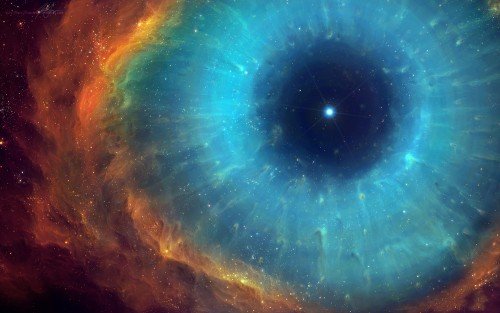
Our thoughts are cloudy, nebulous -
I'm pretty sure you're enlightened enough to know about the volatility of the human perception. We would always empathise with our friends when we begin to see their side of the story. Truth is, we can pretty much frame any situations in wildly different perceptions.
All actions originate as thoughts, or as impulses from our subconscious. Complete free will necessarily requires the mind to have a complete picture over one's situation.
Here's a fun thought experiment: Think of 10 prime numbers. Notice as your thoughts come into existence - a cloud of numbers.. did you really choose 100% of the contents in that cloud? If I ask what's your top 3 favourite movies today, I think you would agree that your answer will be different if I asked you tomorrow instead. At times, we forget some of our options. Our minds are fuzzy.
And what about snap decisions without sufficient time to understand the complete picture? Such disruptive situations deteriorate the quality of free will.
However, it is something that can be trained. Thinking is a skill by itself - just like how you could master specific types of thinking in 10,000 hours. Let's say if you were born in Nazi Germany, you'd most likely become a supporter of the Nazi Regime, especially if you're not exposed to the broader world.
You can only be as "good" as your immediate environment. Thanks to the Internet, immediate environments are shared these days. Good becomes greater good.
We always make our decisions based on the shifting tides of our inner narratives.
Putting our ego aside, it's best to understand there's a chance that we are not fully accountable all the time. I'm not expressing this to absolve people from their misdoings. I'm expressing this in hopes of telling you that things may be not be what it seems. Sure, everyone is responsible for their actions. I just hope no one receives the blunt end of being branded a criminal, especially when criminal justice systems are not very just for the common man.
What about murderers, thieves, and psychopaths?
We are getting more civilized everyday. Simply because we are exposed to different ideas, meeting all sorts of people. Technology helps here. Think about roads, autos, airplanes, and the Internet. Most of us are not in living in secluded tribes. Not anymore. Without a clash of cultures, we are just bound to our immediate environments, operating and valuing things that our environment can only promote. Free-will or not, you are only as free as the system and the information you are exposed to.
While admittedly the real criminals are often those with the establishments (order givers and order followers), do we want to continue with the idea of criminalization alongside our collectively discovered sense of compassion?
All wrong-doings can be boiled down to one word - "theft".
So what do we do about theft?
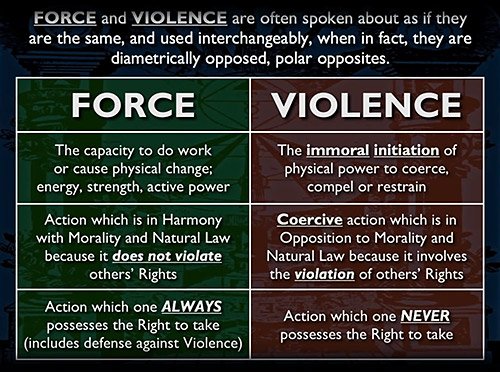
There's a difference between violence and self-defence (force)
There seems to be a growing misunderstanding that compassion should necessarily be a path of complete pacifism. It should be understood that anyone is right to apply sufficient force against the violator (the initiator of violence). Self-defence is not violence, but an act of self-preservation.
So in regards of murderers, thieves, and psychopaths - it is not a moral problem for society to apply force against violence. As long as central governments exist, the practice of criminalization is necessarily made for those that sync up well with the establishment. Not the people. Which is why it needs to end.
Be the change that you want to see in the world.
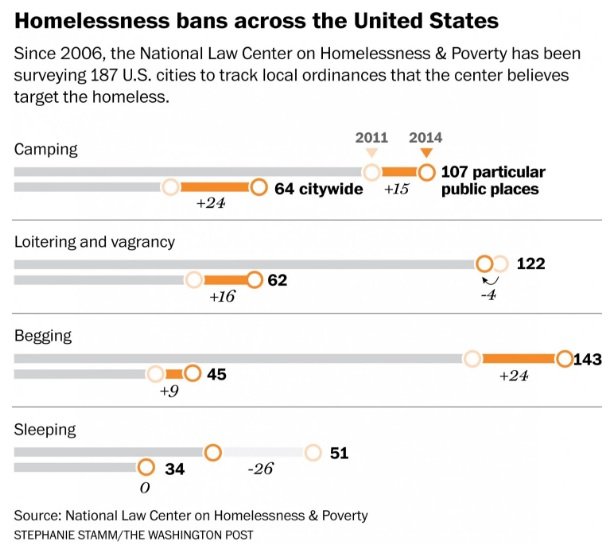
Homelessness is now considered a crime. It's time to realize that criminal justice systems are not really made for the people. Disputes could be solved with compassion. Rather than killing people off and throwing them in jails, it's time to treat people like they're in need of healing (instead of punishment).
If you subscribe to the notion that we're all somewhat connected, remember that I could have been you, and you could have been me. Shit happens all the time. Maybe the system continues to perpetuate criminal activities as long as there is support for such an idea. Clearly, it isn't working on the right kinds of people.
With the advent of decentralization technologies, will the idea of criminalization be surpassed? We need to find a better way of doing things.
Choose to be compassionate.
What are your thoughts about this?
